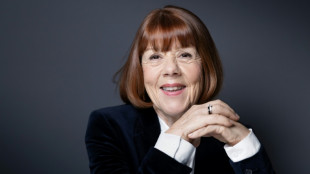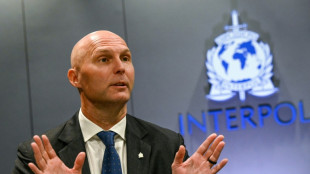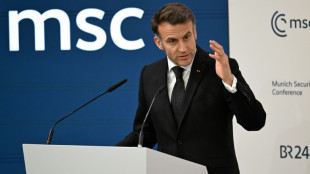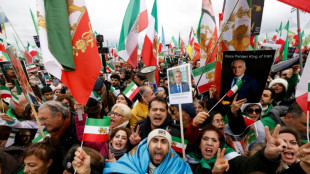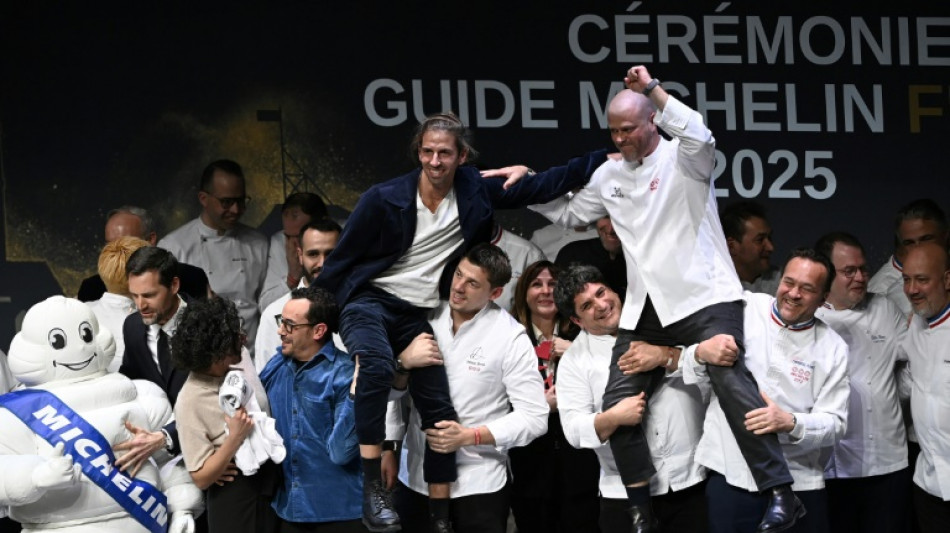

Michelin Guide gets an appetite beyond restaurants
France's famed Michelin Guide, a reference for fine dining for more than a century, is expanding into hotel and wine recommendations as it aims to become a global lifestyle brand.
The offshoot of the French tyre-making company has a loyal following among foodies but faces a battle for attention with other travel guides, review sites such as TripAdvisor, as well as a galaxy of online food influencers.
Staying relevant has led it to look beyond its historic role of sending inspectors anonymously into restaurants and then attributing stars to a handful of high-end eateries.
Having gradually increased the number of territories covered by its food guides -- 69 at last count -- it is now pushing hard into the hotel sector with a new global listing system recommending top-rated resorts and properties.
"We have always maintained a strong foothold in the hotel industry," Guide boss Gwendal Poullennec told an awards ceremony attended by hoteliers from across the world in Paris on Wednesday night.
Instead of stars, hotels are given "keys", on a scale of one to three, based on criteria such as service, style and character.
Poullennec also announced Wednesday that the guide would begin doing reviews for wine, by either building on or re-branding its US-based wine magazine Robert Parker Wine Advocate.
"The Michelin Guide can be regarded today as a global media," he told reporters earlier.
- Credibility question -
Funding its costly network of inspectors, who pay their own bills at the company's expense, has always been an issue.
When Poullennec joined more than 20 years ago, it was loss-making and depended on physical sales of its famous red-coloured guides, mostly in western Europe.
Nowadays it has around nine million unique visitors per month to its website and free phone apps, with around half coming from the United States.
Monetising those eyeballs has led to online reservation services being offered, with a commission of 10-15 percent paid for each booking.
But the group is also taking money from tourism ministries and public bodies in return for publishing guides, raising questions about its impartiality.
It has such partnerships with dozens of countries and local authorities, most recently Saudi Arabia where the culture ministry has funded a guide that will appear for the first time in October.
Yiting Deng, an academic at the University College London School of Management, who has studied the impact of Michelin stars, said the guide faces a balancing act with its tie-ups and partnerships.
"If they work too much with governments, travel agencies and other related parties, there will be this question about credibility and how much their decisions are influenced by other parties," she told AFP.
Poullennec counters that the guide keeps its inspectors and commercial teams strictly separate and only reviews destinations once it judges them to be sufficiently developed.
- Busy space -
The focus on hotels is a return to the origins of the guide which was first published in 1900 by Michelin founders Andre and Edouard Michelin who wanted to encourage drivers to take to the roads -- and burn through their tyres.
"When the Michelin Guide was born in 1900, there were more hotel listings than restaurants," Poullennec said.
Nowadays the industry is awash with competing awards and guides, though none have Michelin's anonymous inspectors.
Conde Nast, Forbes or Travel + Leisure offer gongs, there are influential lists such as The World's 50 Best Hotels, while American Express curates a selection of luxury destinations for its users which is influential among American travellers.
Alvaro Zarzoso, an academic who studied Michelin stars at the University of Seville in Spain, said the guide is still a crucial tastemaker.
In the internet age, its role "has shifted from solitary gatekeeper to anchor signal inside a network where media exposure and online reviews amplify, rather than replace, its certification," he told AFP.
"Expanding into hotels makes strategic sense," he said.
X.Kapoor--MT

